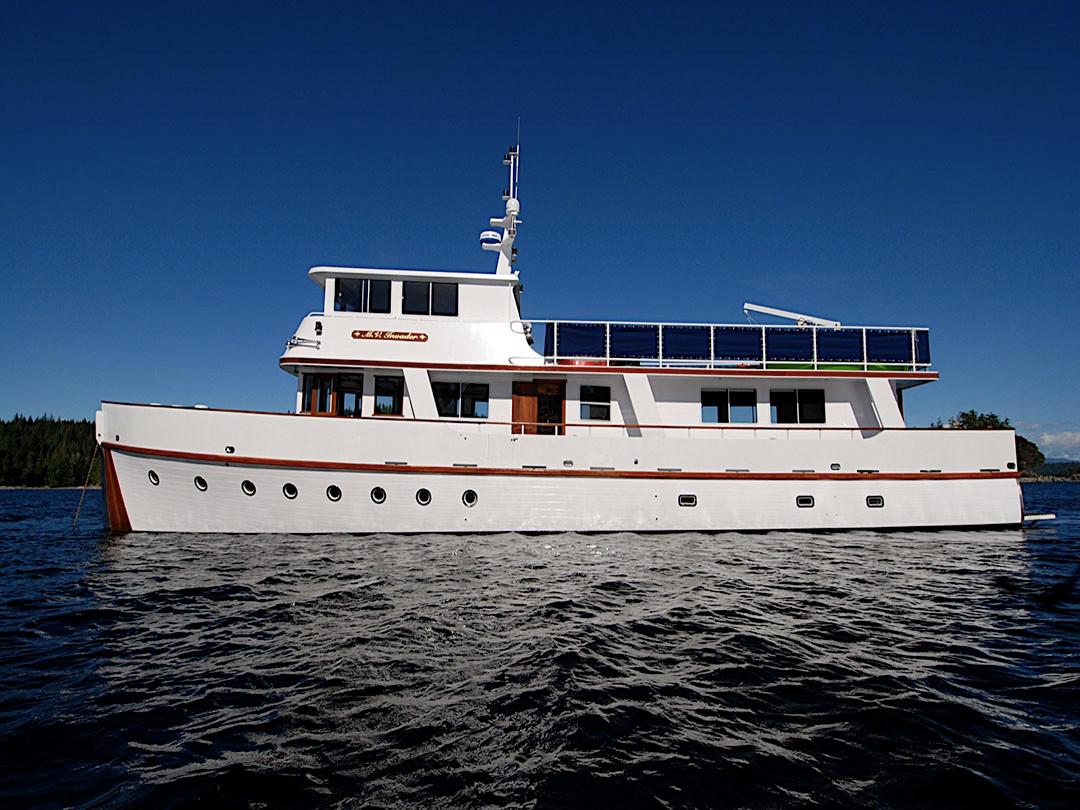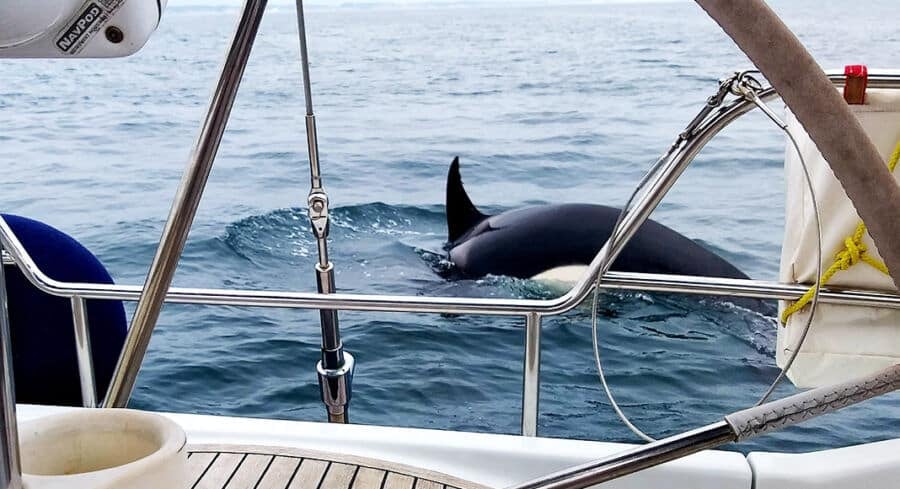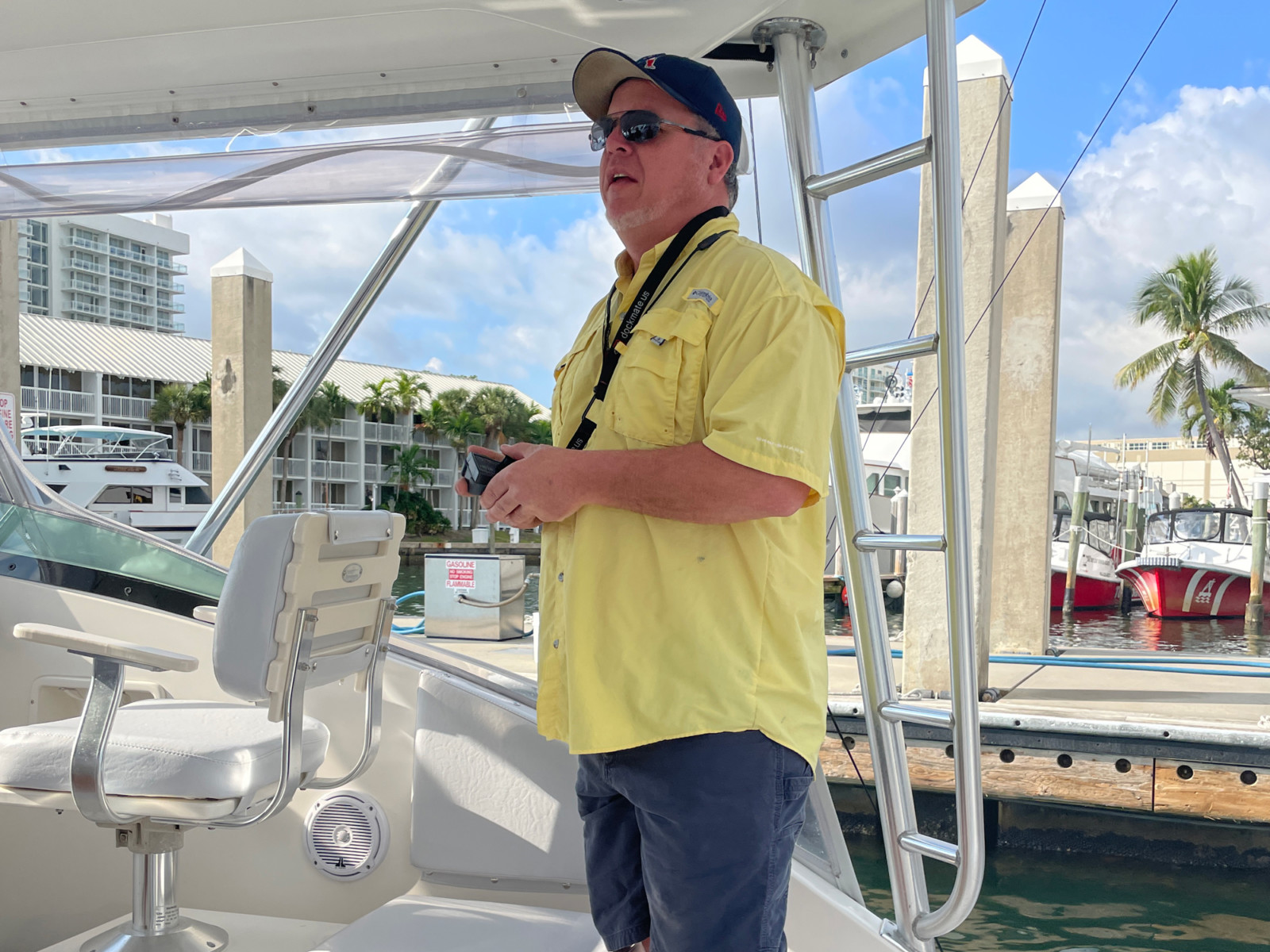Motor Yacht
Motor Yachts: Luxury and Performance Unveiled
Dreaming of hitting the open seas with style and comfort? Motor yachts offer the perfect blend of luxury and adventure, catering to a wide range of tastes and budgets. Motor yachts come in various sizes and designs, from compact trawlers to expansive super yachts, making it easy to find one that meets your specific needs.
When it comes to choosing a motor yacht, understanding the different types and their features is important. You'll find everything from sleek sports coupes to family-friendly flybridge models, each offering unique benefits. Advancements in design and technology have made modern motor yachts more efficient, comfortable, and easier to operate than ever before.
If you're considering ownership, it's crucial to factor in operational requirements and market trends. Not only does this help you find the best deal, but it also ensures you choose a yacht that suits your lifestyle and cruising goals.
Key Takeaways
- Motor yachts come in various sizes and designs for different needs.
- Advancements make modern motor yachts efficient and comfortable.
- Understanding market trends helps in making informed purchase decisions.
Types of Motor Yachts
Motor yachts can be tailored specifically to an owner's tastes, built in high volumes for general sale, or designed to minimize environmental impact.
Custom Yachts
Custom yachts are made to match individual preferences. Builders like Sunseeker and Azimut are leaders in this area.
They work closely with owners to incorporate personalized details and unique features. This can include special layouts, custom décor, and advanced technology. The process of creating a custom yacht is time-consuming and expensive. It offers unmatched luxury and exclusivity.
These yachts often stand out for their unique design and superior craftsmanship. Custom motor yachts are usually larger, offering ample space for entertainment and relaxation. The owner can select everything, from the hull type to the smallest interior details. This ensures a truly one-of-a-kind vessel.
Production Yachts
Production yachts are built in large quantities. They are designed to appeal to a broader audience. Examples include models from Sunseeker and Azimut. These yachts are produced using pre-defined layouts and features.
Production yachts are more affordable and readily available. They offer reliability and practicality. Buyers can often choose from a range of customization options. However, the level of personalization is less than with custom yachts.
These yachts are ideal for buyers who seek luxury but within a budget. Production yachts often come with a warranty and support from the manufacturer. This adds to their appeal.
Eco-Friendly Electric Yachts
Electric yachts are gaining popularity. They are designed to reduce environmental impact. These yachts use electric propulsion systems instead of traditional engines. This results in lower emissions and quieter operation.
Electric yachts can range from small day cruisers to larger luxury models. They are becoming more advanced with improvements in battery technology. Builders focus on creating sustainable and eco-friendly vessels without sacrificing performance.
These yachts appeal to environmentally conscious buyers. They also offer innovative features like solar panels and energy-efficient designs. Electric yachts provide a unique cruising experience that combines luxury with sustainability.
Design and Construction
Motor yachts showcase the highest standards of design and construction, featuring carefully crafted hulls, top-notch materials, and luxurious interiors. Let's dive into the specifics of how these elements come together.
Hull Design
The hull design of a motor yacht is crucial for its performance on the water. Popular designs include planing hulls, favored for their speed, and displacement hulls, known for their stability and efficiency.
Designers use advanced computer-aided design (CAD) to optimize hull shapes for better hydrodynamics. Horizon Yachts and Sunseeker are notable for incorporating these technologies in their designs, ensuring a smooth and efficient ride. The choice of hull material, whether fiberglass, aluminum, or composites, also impacts performance and durability.
Material and Build Quality
Material and build quality are critical for the resilience and longevity of a motor yacht. Leading builders like Westport Yachts utilize high-quality composite materials which provide strength without adding excess weight.
The precision in construction is enhanced by computer-aided manufacturing processes, ensuring each part fits perfectly. Sunseeker uses the best materials, emphasizing not only strength but also aesthetics, as seen in their luxury motor yachts.
Interior Design and Amenities
A motor yacht's interior design reflects luxury and comfort, featuring high-end materials and unique layouts. Horizon Yachts and Burgess Yachts are known for their customized interiors, allowing clients to select details that fit their tastes.
Amenities can range from spacious salons and state-of-the-art kitchens to advanced entertainment systems and luxurious staterooms. Builders focus on maximizing space and ensuring a seamless blend of form and functionality, creating an inviting and elegant onboard experience.
Performance and Specifications
Motor yachts are designed to offer both luxurious comfort and high performance on the water. Key aspects to consider include engine types, power capabilities, range, fuel efficiency, and stabilization systems.
Engine Types and Power
Motor yachts typically come equipped with either inboard or outboard engines. Inboard engines are mounted inside the hull, providing better weight balance and durability. Outboard engines, mounted on the transom, are easier to maintain and replace.
Power ratings for motor yacht engines can vary widely. Smaller yachts may have engines with around 200-600 horsepower, while larger, luxury models could boast engines exceeding 2,000 horsepower. Engines from brands like Caterpillar, MAN, and Volvo Penta are popular choices due to their reliability and performance.
Range and Fuel Efficiency
The range of a motor yacht is significantly influenced by its fuel efficiency. Fuel efficiency depends not only on the engine but also on the yacht's design and cruising speed. For example, at an economical speed of 10-12 knots, some yachts can cover around 1,000 nautical miles on a single tank.
Larger yachts with more powerful engines tend to consume more fuel, reducing range. Technologies such as fuel management systems and hydrodynamic hull designs help optimize fuel usage. This ensures longer trips without frequent refueling.
Stabilization Systems
Stabilization systems play a crucial role in providing a comfortable ride. Motor yachts often use either gyroscopic stabilizers or fin stabilizers. Gyroscopic stabilizers use spinning flywheels to counteract wave motion, ensuring stability even when at anchor. Fin stabilizers, on the other hand, are fins protruding from the hull that adjust dynamically to reduce roll.
Modern systems are highly effective, significantly reducing the rolling motion that can cause discomfort. These technologies are essential for ensuring a smooth and enjoyable experience on the water, especially in rough conditions.
In summary, understanding the engine types, power options, range, and stabilization systems of motor yachts is essential for making an informed purchase or usage decision. Each factor contributes to the overall performance and comfort of the vessel.
Operational Requirements
Ensuring smooth operation of a motor yacht involves key aspects such as crew management, regular maintenance, and proper registration. Each of these elements plays a crucial role in keeping the yacht functional and compliant with maritime regulations.
Crew Composition and Roles
A motor yacht's crew is essential for its operation. Typically, the crew includes the captain, who is responsible for navigation and overall safety. Deckhands perform tasks such as mooring, anchoring, and routine maintenance.
Stewards handle interior upkeep and guest services. Depending on the yacht's size, engineers may be onboard to manage mechanical systems.
The specific composition may vary, but having well-trained, dedicated personnel is vital for efficient yacht management.
Maintenance and Upkeep
Regular maintenance is critical to prolong the life of a motor yacht. This includes routine inspections of the hull, engines, and other important systems.
Operational testing of safety equipment like lifeboats and fire extinguishers should be done periodically as per SOLAS regulations relevant details.
Thorough examinations and occasional overhauls ensure that the yacht remains in optimal condition. Proper documentation of all maintenance activities is essential.
Registration and Flagging
Motor yachts must be registered with a flag state that sets forth regulations for safety, crew qualifications, and maintenance standards. The choice of flag state can impact operational flexibility and legal requirements.
Registration needs to be renewed periodically, and the yacht must comply with the flag state's maritime laws. Ensuring that all necessary certifications are up to date is vital for avoiding legal issues and ensuring safe operations.
Selecting the right flag can also affect the tax status and liability constraints for the yacht and its owner more details.
Ownership and Purchase
Owning a motor yacht involves several steps including the purchase process, ongoing costs, and exploring various yachts for sale. Each of these areas has important aspects that potential yacht owners should understand.
The Purchase Process
The first step in buying a motor yacht is deciding on the type and size that fits your needs. It’s important to review all documents to ensure there are no outstanding liens or encumbrances on the yacht. Engaging with professional yacht brokers can make this process smoother.
Key Steps:
- Select the Yacht: Determine the type, size, and features.
- Review Paperwork: Check for any financial or legal issues.
- Make Payment: Finalize the purchase if everything is clear.
Using resources like Yachtworld can aid in finding credible yachts and brokers.
Cost of Ownership
Owning a motor yacht involves various ongoing costs. These include maintenance, crew wages, and seasonal storage. For larger yachts, employing full-time crew members can be essential and costly. Regular maintenance is vital to keep the yacht in good condition.
Costs to Consider:
- Maintenance: Regular upkeep and repairs.
- Crew: Full-time or part-time crew expenses.
- Storage: Costs for winter storage or docking.
According to YachtWorld, the costs can vary significantly based on the yacht's size and age.
Yachts for Sale
Exploring the market for yachts for sale involves checking listings on reputable sites and through brokers. Options range from new to used yachts, each with different benefits and costs. Some companies offer charter yacht management programs that provide guaranteed monthly income.
Types of Yachts:
- New Yachts: Typically come with warranties and fewer immediate maintenance needs.
- Used Yachts: Can be more affordable but may require more initial repairs.
For those interested in a charter program, The Moorings offers structured ownership plans that can offset some costs through rentals.
Experiences and Lifestyle
Living on a motor yacht offers a unique way of life filled with opportunities for adventure, luxurious accommodations, and the ability to host various events or chartering activities.
Guest Accommodations
Motor yachts are designed with comfort and luxury in mind, especially for guests. Depending on the size and layout, they can have several guest cabins, often with en-suite bathrooms. Spacious living areas, such as salons and deck spaces, are common features where guests can relax or entertain. Larger yachts might also include special amenities like hot tubs, gyms, and theaters. These features ensure that guests experience maximum comfort and enjoyment during their stay.
Adventure and Exploration
Motor yachts offer unparalleled opportunities for adventure and exploration. Owners and guests can travel to exotic destinations, explore remote islands, or cruise through pristine waters. Activities such as snorkeling, scuba diving, and fishing are often a part of the journey, providing endless excitement. Moreover, many motor yachts come equipped with various water toys like jet skis, paddleboards, and kayaks to make the experience even more thrilling. The freedom to chart one's own course makes every trip a unique adventure.
Events and Chartering
Motor yachts are also ideal for hosting events and chartering. They provide an exquisite setting for special occasions like weddings, birthday parties, or corporate gatherings. With professional crews handling the navigation, catering, and guest services, hosts can focus entirely on their guests. Additionally, the hospitality industry has seen a rise in yacht charters for luxury vacations, allowing individuals to rent motor yachts for short-term use. This not only allows more people to experience yacht life but also creates a significant income stream for yacht owners.
Advancements and Innovations
The world of motor yachts is rapidly evolving with new technologies and designs. Highlights include electric propulsion systems, enhanced safety features, and futuristic concepts from manufacturers such as Alia and VisionF.
Cutting-Edge Technologies
Electric propulsion systems are becoming more common. Brands like Greenline and Alva Yachts lead in hybrid and electric yachts, promoting sustainability. These advancements help reduce carbon emissions and offer quieter rides.
Safety features are also advancing. Modern yachts include systems to avoid collisions and advanced theft prevention technologies. Enhanced navigation systems and robust safety protocols ensure safer voyages.
Innovative materials and design also play a role. Cutting-edge composites and lightweight materials improve fuel efficiency and performance, leading to sleeker, more efficient yachts.
Future of Yachting
VisionF and Alia are at the forefront of yacht innovation. VisionF focuses on futuristic designs, integrating next-generation technology for a unique experience. Their yachts stand out for their advanced hull designs and smart interiors.
Alia Yachts blend luxury with eco-friendly innovation. Their designs emphasize sustainability without sacrificing performance or comfort. They incorporate solar panels and energy-efficient systems, anticipating future environmental regulations.
Both companies aim to redefine yachting. Their forward-thinking approaches ensure that the future of yachting is greener, smarter, and more efficient. This commitment to innovation promises significant change and excitement within the industry.
Market Trends and Insights
The motor yachts market is growing rapidly due to increased demand for luxury and leisure vessels. This includes technological advancements and significant growth in specific regions.
Industry Analysis
The motor yachts segment achieved a remarkable revenue share of 81.5% in 2023. This category includes luxury motorboats used for sports, leisure, and enjoyment. The market size was valued at USD 9.38 Billion in 2023 and is projected to reach USD 13.95 Billion by 2030. The market’s CAGR of 5.8% during 2024-2030 highlights steady growth driven by innovation and high-net-worth individuals (HNWI).
Manufacturers are focusing on integrating advanced technologies into yachts. This includes state-of-the-art navigation systems and eco-friendly features, catering to a growing segment of environmentally conscious consumers. Additionally, there is a trend towards customization, with buyers opting for unique designs and features tailored to their preferences.
Emerging Markets
The North America yacht market is expected to grow at a rate of 4.8% from 2024 to 2030. This growth is attributed to a robust and diverse market driven by high disposable incomes and a passion for yachting. The region's market is also supported by a strong network of marinas and related infrastructure.
European markets are also significant, with strong demand for luxury motor yachts. This is driven by a combination of tourism and affluent local populations. Moreover, emerging markets in Asia are beginning to show promise due to increasing numbers of HNWI and interest in luxury lifestyles. This interest is expanding the global footprint of the motor yachts market and encouraging investment in new marinas and yachting facilities in these regions.
Frequently Asked Questions
Motor yachts differ from motor boats in size, features, and costs. It's crucial to understand these distinctions along with key considerations when buying used yachts and comparing ownership costs.
What factors determine the price of a motor yacht?
The price of a motor yacht is influenced by several factors such as size, brand, age, and custom features. Larger yachts with advanced technology and luxurious amenities generally command higher prices. The reputation of brands like Sunseeker and Azimut also plays a significant role in pricing.
What are the main differences between a motor yacht and a motor boat?
Motor yachts are typically larger, often exceeding 60 feet, and offer more luxury and amenities compared to motor boats. They are designed for extended travel and comfort, while motor boats are smaller and better suited for shorter trips and daily outings.
What should one consider when buying a used motor yacht?
When buying a used motor yacht, check for the yacht's maintenance history, perform a thorough inspection of the hull and engines, and consult with a marine surveyor. Ensure that previous repairs were done correctly and no significant issues remain.
How does the ownership cost of a luxury motor yacht compare to smaller yachts?
Luxury motor yachts have higher ownership costs, including more expensive insurance, docking fees, and maintenance. Smaller yachts generally have lower overall costs but may lack the same level of amenities and technology. Annual maintenance for luxury yachts, including engine checks and hull cleaning, is essential to retain value and performance.
What are the principal features that distinguish sailing yachts from motor yachts?
Sailing yachts rely on wind power and have masts and sails, while motor yachts use engines for propulsion. This makes motor yachts faster and more powerful. Sailing yachts offer a different experience, usually requiring more skill to operate and presenting a quieter, more eco-friendly option for travelers.
How do I find motor yachts for sale by owner?
To find motor yachts for sale by owner, check specialized yacht sale websites, local marine classifieds, and online forums. Sites like seamagazine.com offer comprehensive listings that can help you connect directly with owners looking to sell their yachts.
















